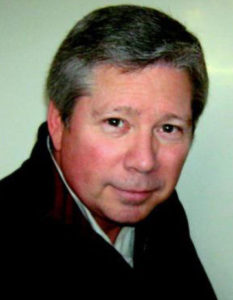 by Rick Helms
by Rick Helms
A great writer named Jerry Healy, who sadly left us a couple of years back, once said something that resonated strongly with me. It’s probably a quote from someone else, but I heard him say it, so I associate it with Jerry.
He said, “Everyone has a novel in him or her. Not everyone has a SECOND novel.”
For a working writer, constant production is the key to success. I see many, many writers each year at conferences who are still flogging a book they wrote and published ten years ago. They have a single title out, and they’ve been riding it like a trusty steed for years.
And good for them! They wrote and published a novel, something rare and wonderful. They contributed to their own personal legacy, and will leave a bit of themselves behind when they shuffle off this mortal coil, and people will get a peek into their lives long after they are gone, as long as the book exists. They should stand proud.
However…
Unless your name is Harper Lee or JD Salinger or John Kennedy Toole, a single title does not a career make. A book a year is considered the standard. The prolific writers put out two or three a year. The genuine aliens in our midst, like Robert Randisi, write one every several weeks.
One of the most common questions I get at cons—being in the two-to–three-books–a-year crowd—is, “Where do you get your ideas?
First, I don’t purposefully go searching for them. I let them come to me. I once had dinner with Theodore Sturgeon, during which he emphasized the importance of ‘asking the next question.’ There are layers to life. We see only the surface layer—the stuff that people say and do. The trick is to ask the next question, which is WHY they say and do those things. That leads to characterization. An entire novel can revolve around motivation alone.
 I take a week or so between books to relax, go to the movies, read newspapers, and binge-read other authors’ novels and short stories. When I leave my own ego behind and immerse myself in the work of others, or observe people in public, or simply run across an interesting newspaper article, I ask why those people are doing what they’re doing. I envisioned an entire novel while watching a film of a performance by Joan Baez at Woodstock. It simply unfolded in my mind as I watched, and I dashed to the computer and wrote a quick synopsis.
I take a week or so between books to relax, go to the movies, read newspapers, and binge-read other authors’ novels and short stories. When I leave my own ego behind and immerse myself in the work of others, or observe people in public, or simply run across an interesting newspaper article, I ask why those people are doing what they’re doing. I envisioned an entire novel while watching a film of a performance by Joan Baez at Woodstock. It simply unfolded in my mind as I watched, and I dashed to the computer and wrote a quick synopsis.
The story ideas are all around us. The writer’s job is to expand everyday life and look for interconnectedness and conflict. Sitting at the computer and waiting for inspiration won’t get it. The writer reinterprets the world as it is, and to stoke the furnace it’s necessary to leave ourselves behind and immerse ourselves in someone else’s consciousness—whether it’s another author, someone in the news, or a folk singer performing for thousands of people while her husband languishes in jail.
Stop staring at the blank computer screen, and the stories will appear.
Richard Helms retired as a forensic psychologist in 2005. After two decades as a court-recognized expert in sex crimes and the psychology of sex offenders, mystery writing seemed a logical next step. Helms has nineteen novels in print. His most recent novel, and his third Judd Wheeler title (Older Than Goodbye), was published in October 2014 by Five Star/Cengage. He has been nominated five times for the Private Eye Writers of America Shamus Award. He has also been nominated six times for the Short Mystery Fiction Society Derringer Award.

Quick correction to my bio. I am no longer the only author to win the Derringer Award in two different categories in the same year. John Floyd, a writer I admire greatly, also accomplished it two years ago.